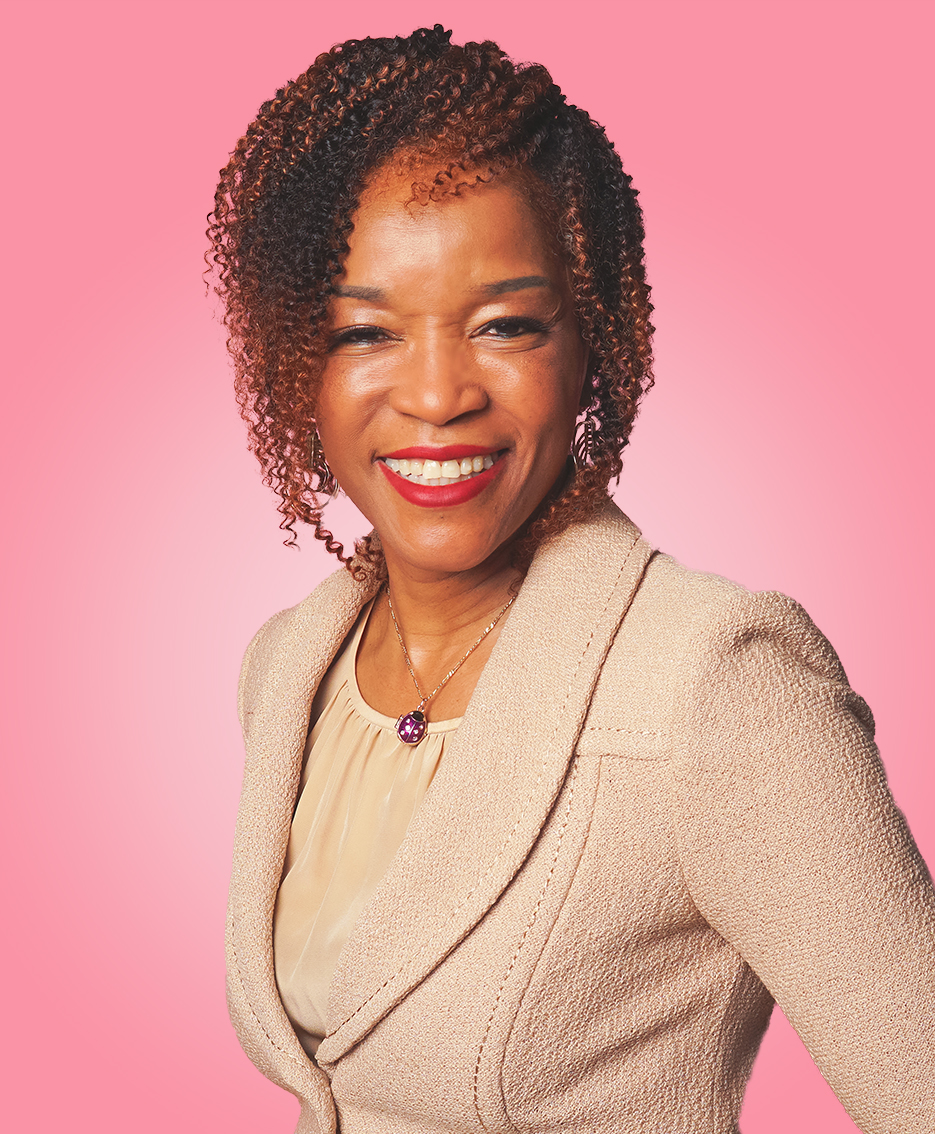 Elizabeth Ofili, M.D., M.P.H., Professor of Medicine at Morehouse School of Medicine, presented a special keynote address in honor of International Women’s Day at the Medical Grand Rounds held on Wednesday, March 1, co-hosted by the University of Alabama at Birmingham (UAB) Department of Medicine and the Heersink School of Medicine Office for Diversity and Inclusion (Heersink ODI).
Elizabeth Ofili, M.D., M.P.H., Professor of Medicine at Morehouse School of Medicine, presented a special keynote address in honor of International Women’s Day at the Medical Grand Rounds held on Wednesday, March 1, co-hosted by the University of Alabama at Birmingham (UAB) Department of Medicine and the Heersink School of Medicine Office for Diversity and Inclusion (Heersink ODI).
Introductions and Good News highlights
Lisa L. Willett, M.D., professor at UAB Heersink School of Medicine and program director of the Tinsley Harrison Internal Medicine Residency Program, kicked off the International Women’s Day (IWD) event, with three pieces of uplifting news from the Department of Medicine, as featured in the weekly Good News newsletter:
• Dr. Malcolm Chapman, a first-year internal medicine resident, gave an interview – featured on the Department of Medicine website - about health literacy and representation in medicine.
• Dr. Fouad and Heersink ODI associate dean Raegan Durant, M.D., M.P.H have spearheaded the Benjamin-Carver FIRST Scientists program - a partnership between researchers and early-career faculty at UAB and Tuskegee University.
• Merry-Lynn McDonald, Ph.D., associate professor in the Department of Medicine, is the latest winner of the Heersink School of Medicine’s Featured Discovery Award for her multi-ancestry genetics study of osteoarthritis.
Willett then passed the floor to Anupam Agarwal, M.D., dean of the Heersink School of Medicine, Senior Vice President of Medicine and Chair of the Health Services Foundation Board, who provided more context about the theme of International Women’s Day in relation to Heersink ODI.
The theme of IWD and this event: Embrace Equity
Agarwal underlined the significance of International Women's Day and its theme, "Embrace Equity," which aligns with Heersink’s commitment to diversity and inclusion. The dean then emphasized the importance of creating an inclusive school and advancing gender equity, while ensuring that women faculty have the resources, support, and recognition necessary to reach their potential. He concluded by thanking everyone for joining and introduced Fouad, who shared highlights from keynote speaker’s illustrious career.
Fouad Introduces Ofili: A Leading Mind on Women's Health
Fouad introduced Ofili as a leading expert in cardiovascular disparities, women's health, and preventive cardiology. She also mentioned that Ofili is a patent holder for a system and method for chronic illness care and has received over 20 national and international awards, among many other accomplishments. Fouad finally stated that Ofili is a role model for women clinicians and researchers and explained how her landmark research has led to updating the guidelines for best practices in treating heart failure in African Americans. The Senior Associate Dean invited everyone to join her in welcoming Ofili as one of the leading minds on women's health.
Highlights of Ofili's presentation on Diversity and Inclusive Excellence in Healthcare and Research
• A central tenet of the keynote address was the democratization of health equity and workforce diversity. This means having a diversity of questions and perspectives while viewing things through the health equity lens, which is especially pertinent when considering the theme of IWD: Embrace Equity.
• Ofili also highlighted how inclusive excellence should re-envision both quality and diversity and must go beyond numbers to address questions of who is doing the science, what science is being done, and who has access to scientific discovery at every level.
• She explained that diversity is essential because it leads to better decision-making, creativity, and innovation. Persistent disparities and changing demographics in the US require a fully diversified scientific community to maintain global research preeminence.
• Ofili highlighted how there have been a growing number of Ph.D. graduates from underrepresented backgrounds, disproving the myth that diverse talent doesn’t exist.
• However, there has historically been a significant drop-off in the representation of women and men who are underrepresented as you move up the leadership ladder within academic health centers, as well as a significant success rate differential between African American/Black and white applicants to R01 type research grants.
• The Diversity Program Consortium placed an emphasis on mentoring to address these disparities in NIH funding patterns, and provided funding for both individuals and institutions with a high number of underrepresented minorities. In recent years, the gap persists but has been lessened. Between 2013 and 2018, there was a 28.9% increase in African American/Black applicants and a 68.9% increase in the African American/Black funding rate for R01-Equivalent grants.
• Career advancement and mentorship play an essential role in creating a diverse and inclusive scientific community. The more equity is embraced through collaboration and elevation, the more success is possible.
• She also strongly emphasized that while changes on an individual level are necessary, they are not sufficient. Institutional level changes are needed. Institutional transformation, changes to policy and processes, and cultural change are required to enact lasting changes that ensure equity.
• Ofili closed her address by sharing a few lessons from her own experiences and perspective, including how external expectations are not always in line with reality and that ticking off items on a checklist of imagined success isn’t always a good fit.
Q&A section
In response to a question from Fouad during the Q&A, Ofili advised women to not be afraid to ask for help and support from colleagues, mentors, and family. She emphasized the importance of setting clear priorities and boundaries, building a strong network, and seeking out opportunities for leadership and career development while maintaining a healthy work-life balance. In this way, we can all hope to emulate Ofili and embrace equity in work and home life.